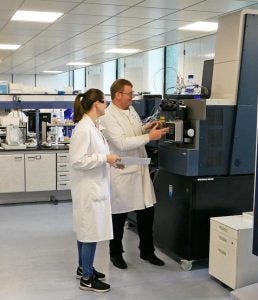- Sponsored Content
- Manufacturing
Strategic Development of Characterization and Quality Control Programs for Therapeutic Peptides
October 15, 2020
Date: Oct 15, 2020
Duration: 20 Min
Already have an account?
Sponsored by Intertek
 This webcast features: Ashleigh Wake, UK Business Development Director, Intertek Pharmaceutical Services
This webcast features: Ashleigh Wake, UK Business Development Director, Intertek Pharmaceutical Services
Peptide therapeutics are a unique class of pharmaceuticals that may be regarded, in regulatory terms, as either conventional chemical molecules, biological entities or biosimilars. Slight changes in the structure, physicochemical properties, stability, and impurity profile of a peptide can provoke an adverse immune response; therefore, safety assessment is critical. Building a well-thought-out quality control (QC) strategy is key to meeting development milestones and complying with evolving regulatory requirements. A robust analytical QC program should be conducted in laboratories that comply with good manufacturing practices (GMPs) to help establish and meet specifications, supporting regulatory submissions. Programs should be tailored to a peptide of interest to ensure precision, selectivity, and confidence in the results generated.
In this webinar, our expert Ashleigh Wake (UK Business Development Director at Intertek Pharmaceutical Services) introduces the regulatory and scientific considerations for peptide development and describes key analytical approaches for biophysical characterization, higher-order structure, aggregation, disulfide-bond analysis, and product-related impurity analysis, which are required as part of a robust peptide QC program.
Watch the recorded webcast now.
About the Author
You May Also Like





